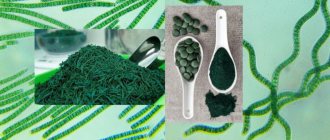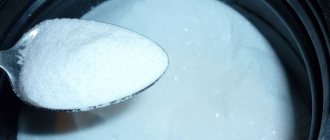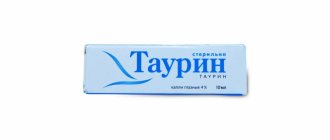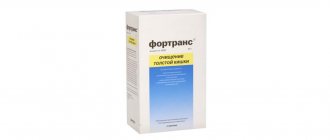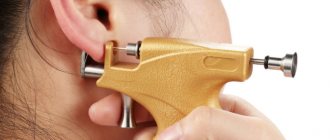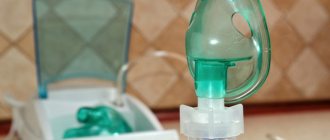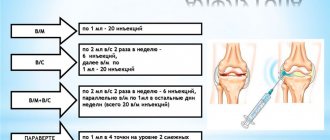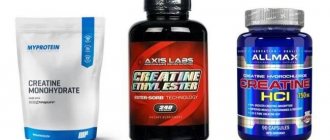Most women suffer from an unaesthetic “orange peel” on the thighs, abdomen, and buttocks. The defect can appear not only in plump older ladies, but also in slender young girls. In the early stages of the disorder, its external manifestations can be dealt with using external means. Special formulations include substances that help eliminate the main causes of defect formation. Nicotinic acid for cellulite is used in different forms. When used externally, it helps to quickly restore an attractive, toned appearance to the skin.
The effect of nicotinic acid on cellulite
Cellulite (lipodystrophy) is a change in the structure of adipose tissue under the influence of stagnation of fluid and lymph in the skin tissues, circulatory disorders, and slow metabolism. As a result of such deviations, the affected areas of the dermis become loose, bumpy, and rough.
The appearance of a defect is provoked by:
- "passive lifestyle;
- smoking;
- unhealthy diet with a predominance of fatty, fried foods;
- alcohol abuse and other reasons.
To eliminate the “orange peel” (or prevent its appearance), you need to completely change your diet, play sports, and follow a drinking regime. Various local procedures (massage, wraps, etc.) provide significant assistance in the fight against cellulite. To carry them out, they use cosmetics enriched with components that have a positive effect on blood flow, metabolism, and fat burning.
These compounds include nicotinic acid (vitamin PP). This substance is involved in all metabolic processes occurring in the body. Its deficiency, according to experts, increases the craving for sweets, which leads to the gain of extra pounds and the accumulation of fat deposits. In addition, “nicotine” promotes better absorption of other nutrients and vitamins.
The compound does not have a direct effect on fat burning, but indirectly contributes to “losing” weight due to its complex effect on the body.
Nicotinic acid helps:
- normalize metabolism;
- increase blood circulation and lymphatic drainage in the dermal tissues;
- stabilize cholesterol levels;
- activate the synthesis of gastric juice;
- accelerate the removal of waste and toxins;
- cope with fluid stagnation in the intercellular space;
- prevent hormonal imbalances;
- achieve deep skin hydration;
- prevent fat deposition;
- increase the digestibility of amino acids;
- stop the inflammatory process;
- accelerate cell regeneration;
- prevent premature aging of the epidermis, stop the appearance of folds and wrinkles.
Vitamin PP has a positive effect on the functioning of the brain and heart, and strengthens vascular walls.
Nicotinic acid is involved in the synthesis of serotonin (the so-called “hormone of joy”). This helps a person cope with stress without the need to “eat” troubles, and allows you to keep your appetite under control.
External procedures with the drug significantly improve the quality of the skin. They even out its color and texture, returning softness, firmness, and elasticity. With an integrated approach, cellulite tubercles are gradually smoothed out, and the body takes on a young, healthy appearance.
Causes of cellulite
Cellulite is a problem for many women, but the World Health Organization does not recognize it as a disease. Cellulite is stagnation in fatty tissues and a violation of lymph outflow. In this regard, on the abdomen, buttocks, and thighs, the skin becomes loose, with many dimples and tubercles. This is cellulite, which is often also called “orange peel” because of the appearance it gives to the skin.
Cellulite appears for many reasons. The main ones are the following:
- Sedentary or sedentary lifestyle;
- Poor nutrition;
- Bad habits (smoking, alcohol);
- Violation of metabolic processes;
- Stagnation in fatty tissues.
Therefore, in order to get rid of cellulite, it is necessary to carry out a whole range of measures: change your diet, be more active, play sports. In addition, various massages and wraps help in the fight against cellulite.
In what forms is it available?
You can buy nicotinic acid at any pharmacy. It comes in different forms. Girls can choose the most convenient option for themselves.
Pills
Tablets of vitamin PP are packaged in packages of 50 pieces. Tablets contain 50 mg of active ingredient.
This form is preferable for oral administration. The dosage is selected by the attending physician, individually for each patient. Typically, it is recommended to consume from 0.02 to 0.05 g of medication per day.
Ampoules
The injection solution is packaged in cardboard boxes of 5 or 10 ampoules. The container contains 10 mg of active substance. The auxiliary components are water and sodium bicarbonate.
For ease of use, manufacturers include a scarifier in each package for opening ampoules. The solution is usually used externally, adding to creams and other complex anti-cellulite mixtures.
How to fight cellulite with nicotinic acid
The most popular way to use vitamin PP to combat excess weight today is anti-cellulite wrap. For these purposes, the impact area should be prepared. To open the pores, you need to use a scrub. After this, do a light warming massage, rubbing problem areas of the skin with your palm. This method is best used for cellulite on the thighs.
After the skin is ready, and it should turn slightly pink after the massage, you can apply the wrap. It is necessary to purchase nicotinic acid in ampoules. Open 5 pieces and dilute them with filtered water in a ratio of 1:3. After thorough mixing, you should moisten the bandage in the resulting solution and wrap it around the problem areas. Then take the cling film and place it over the bandage, carefully securing it.
This will enhance the anti-cellulite effect. You need to wrap a towel or shawl over the bandage. The duration of the first procedure should not be more than 20 minutes. If an allergic reaction does not appear on the skin, the duration of exposure can be increased to half an hour. Each subsequent procedure must last at least 35 minutes. The wraps should be repeated every 48 hours. Course of 10 procedures.
To speed up the breakdown of fats, it is recommended to include nicotinic acid in the diet by consuming foods that contain it: buckwheat, legumes, nuts, mushrooms, etc.
Vitamin PP in ampoules can also be added to baby cream and used to massage the problem area. The course of procedures is from 10 to 14. In any case, nicotinic acid cannot be used without interruption. After each course you need to take a break of at least 10 days. For 1 tbsp. l. baby cream or olive oil you will need 1 tsp. nicotinic acid. The ingredients must be mixed thoroughly. The massage should be performed for at least 10 minutes. It is necessary to alternate rubbing, stroking, patting and pinching movements.
What you need for wrapping - gallery
Nicotinic acid in ampoules about 5 pieces
Filtered water (or you can use boiled water)
Any cling film will do
Towel to enhance the effect
Indications for nicotinic acid
In medicine, the drug is prescribed for hypo-, avitaminosis of vitamin PP. It is also used in complex treatment:
- a number of complications of diabetes mellitus;
- neuritis of the facial nerve;
- ischemic stroke;
- obliterating diseases of the blood vessels of the legs;
- disturbances in the absorption of certain amino acids (Hartnup's disease).
Cosmetologists use nicotinic acid externally in the treatment of cellulite at different stages, to eliminate sagging skin, get rid of peeling or roughening of the epidermis, and relieve swelling. The remedy is especially effective in cases where lipodystrophy is caused by circulatory disorders in the smallest vessels.
Nicotinic acid 50 mg 50 pcs. pills
pharmachologic effect
Vitamin
Composition and release form Nicotinic acid 50 mg 50 pcs. pills
Tablets - 1 tablet:
- Active ingredient: nicotinic acid - 50 mg;
- Excipients: calcium stearate - 2.010 mg, corn starch - 47.503 mg, sucrose (white sugar) - 98.477 mg, talc - 2.010 mg.
Description of the dosage form
Round, flat-cylindrical tablets of white color, with a chamfer.
Characteristic
Nicotinic acid (vitamin PP) is a specific antipellagritic agent. The drug improves carbohydrate metabolism, has a vasodilating effect, including on brain vessels, and has hypolipidemic activity.
Nicotinic acid is prescribed for the treatment of pellagra (vitamin deficiency of vitamin PP); in complex therapy: ischemic cerebrovascular accidents, vascular diseases of the lower extremities, vascular spasms of the extremities, biliary and urinary tracts, complications of diabetes mellitus, liver diseases (acute and chronic hepatitis), gastritis with low acidity, as well as neuritis of the facial nerve , with long-term non-healing wounds and trophic skin ulcers.
Available in tablet form (50 mg). The tablets should be taken orally after meals.
Available without a prescription.
Directions for use and doses
Inside, after eating. Used as prescribed by a doctor.
Treatment of pellagra.
Children from 3 years old: 50 mg 2-3 times a day, adults: 100 mg 2-4 times a day. The course of treatment is 15-20 days.
Use in complex therapy: ischemic cerebrovascular accidents, vascular diseases of the lower extremities (obliterating endarteritis, Raynaud's disease), vascular spasms of the extremities, biliary and urinary tracts, complications of diabetes mellitus (diabetic polyneuropathy and microangiopathy), liver diseases (acute and chronic hepatitis), with gastritis with low acidity, as well as with neuritis of the facial nerve, with long-term non-healing wounds and trophic skin ulcers.
Children over 3 years of age are recommended to use other dosage forms, adults 50-100 mg 2-4 times a day. The course of treatment is 1 month.
For adults, the maximum single dose is 100 mg, the maximum daily dose is 500 mg.
If there is no improvement after treatment, or symptoms worsen, or new symptoms appear, you should consult your doctor. Use the drug only according to the indications, method of administration and in the doses indicated in the instructions.
Pharmacodynamics
Nicotinic acid (vitamin PP) is a specific antipellagritic agent. Improves carbohydrate metabolism, has a vasodilating effect, including on brain vessels, and has hypolipidemic activity. In large doses, nicotinic acid lowers the content of triglycerides and β-lipoproteins in the blood, reduces the cholesterol/phospholipid ratio in low-density lipoproteins.
Pharmacokinetics
After oral administration, it is quickly absorbed in the stomach and upper parts of the duodenum. The time to reach maximum concentration in the blood (Cmax) is 45 minutes. Absorption from the gastrointestinal (GI) tract is slowed by malabsorption. Metabolized in the liver. Half-life (T1/2) – 45 min. It is excreted by the kidneys in the form of metabolites; when taking high doses, it is mainly unchanged.
Indications for use Nicotinic acid 50 mg 50 pcs. pills
Nicotinic acid is prescribed for the treatment of pellagra (vitamin deficiency of vitamin PP); in complex therapy: ischemic disorders of cerebral circulation, vascular diseases of the lower extremities (obliterating endarteritis, Raynaud's disease), spasms of the vessels of the extremities, biliary and urinary tracts, complications of diabetes mellitus (diabetic polyneuropathy and microangiopathy), for liver diseases (acute and chronic hepatitis), with gastritis with low acidity, as well as with neuritis of the facial nerve, with long-term non-healing wounds and trophic skin ulcers.
Contraindications
Increased individual sensitivity to the components of the drug, severe forms of hypertension and atherosclerosis, gout, hyperuricemia, nephrolithiasis, decompensated diabetes mellitus, pregnancy and breastfeeding, peptic ulcer of the stomach and duodenum (in the acute stage), severe liver failure, children under 3 years of age -x years.
With caution: Hemorrhages, glaucoma, gout, liver failure, diabetes mellitus, arterial hypotension, hyperacid gastritis, gastric and duodenal ulcers (not exacerbation).
Application Nicotinic acid 50 mg 50 pcs. pills during pregnancy and breastfeeding
Taking the drug is contraindicated during pregnancy and breastfeeding.
Before using niacin, if you are pregnant, think you might be pregnant, or are planning a pregnancy, you should consult your doctor.
special instructions
Use orally with caution in patients with hemorrhages, glaucoma, gout, hyperuricemia, liver failure, arterial hypotension, hyperacid gastritis, gastric and duodenal ulcers (in remission).
Use parenterally with caution in patients with hemorrhages, glaucoma, liver failure, arterial hypotension, hyperacid gastritis, gastric and duodenal ulcers (in the acute phase).
With long-term use of nicotinic acid in high doses, fatty infiltration of the liver may develop.
During treatment it is necessary to monitor liver function.
It is not advisable to use for the correction of dyslipidemia in patients with diabetes mellitus.
To prevent liver complications, it is recommended to include foods rich in methionine (cottage cheese) in the diet or use methionine, lipoic acid and other lipotropic agents.
Overdose
High doses of nicotinic acid can cause increased severity of side effects, including a feeling of a rush of blood to the head and upper half of the body, itching, and gastrointestinal disorders.
Treatment: drug withdrawal, symptomatic therapy. There is no specific antidote.
In case of overdose, consult a doctor immediately.
Side effects Nicotinic acid 50 mg 50 pcs. pills
Possible allergic reactions, itching of the skin of the face and upper half of the body, dry skin and mucous membrane of the eyes, dizziness, redness of the face, feeling of a rush of blood to the head, paresthesia, dyspepsia, hyperglycemia, orthostatic hypotension, diarrhea, hyperuricemia, myalgia, nausea, vomiting, peptic ulcer. In this case, you should reduce the dose or discontinue the drug. With long-term use of large doses of nicotinic acid, the development of fatty liver degeneration, hyperuricemia, increased activity of liver transaminases and alkaline phosphatase, and decreased glucose tolerance are possible.
If you experience any adverse reactions listed in the instructions, or if they worsen, or if you notice any other unwanted reactions not listed in the instructions, tell your doctor.
Drug interactions
When using nicotinic acid simultaneously with other medications, you should consult your doctor.
Caution must be exercised when combined with antihypertensive drugs, anticoagulants and acetylsalicylic acid.
If you are taking any other medications (including over-the-counter medications) at the same time, consult your doctor before using Nicotinic Acid.
Contraindications
Like any other pharmaceutical drug, nicotinic acid has a number of contraindications for use.
You should not use vitamin PP if:
- kidney diseases;
- blood clotting disorders;
- hepatitis;
- glaucoma;
- gout;
- stomach or duodenal ulcer (especially in acute form);
- thrombophlebitis;
- diabetes mellitus in the stage of decompensation;
- hypotension;
- varicose veins;
- liver cirrhosis;
- inflammation of the large intestine;
- atherosclerosis;
- individual intolerance to the drug.
Nursing mothers and pregnant women will have to refuse figure correction using nicotinic acid. It is forbidden to apply the product to areas of the skin with any damage (including minor scratches). Nicotine is not used to treat young children.
Methods of application
Due to its properties, nicotinic acid is actively used in dietetics. To get rid of extra pounds, experts recommend adding foods rich in this substance to your diet:
- buckwheat;
- tomatoes;
- meat by-products (especially liver, kidneys);
- beets;
- turnip;
- mushrooms grown in the natural environment.
It is better to replace the usual tea or coffee with decoctions of rose hips, sage or ginseng, which contain a large amount of vitamin PP.
Nicotine is also used by cosmetologists to restore the structure and appearance of the integument. The compound is included in anti-cellulite creams, mixtures for wraps, and massage sessions.
Wrap
The procedure is one of the most effective in the fight against cellulite. This is explained by additional thermal exposure, under the influence of which the body triggers protective mechanisms. The pores open as much as possible, blood flow in the peripheral vessels increases. Metabolic processes are activated. The active components of therapeutic masks penetrate deep into the tissues of the dermis, waste, toxins, and stagnant fluid are intensively removed.
Nicotinic acid (description of the drug)
Despite the fact that many people associate nicotinic acid only with cigarettes and smoking, it is nevertheless essential for the human body. It is found in digestive enzymes that are involved in the oxidation of fats and carbohydrates.
With a lack of nicotinic acid in the body, a person constantly craves something sweet. And no one is immune from this, since the human body is not always provided with nicotinic acid. But this substance takes on the role of a kind of catalyst and prepares the body to accept other useful substances. Thus, if there is not enough nicotinic acid in the body, then other beneficial substances and vitamins will be absorbed much worse.
In fact, the attitude towards nicotinic acid is quite ambiguous: some consider it absolutely useless, others – on the contrary, absolutely necessary. One way or another, experts agree on one thing - nicotinic acid helps improve blood vessels.
Acid has other names. When we hear about vitamin B3 or PP, we are talking about nicotinic acid. It should be noted right away that the substance does not promote the burning of fat cells, but it helps to normalize and regulate metabolism, cholesterol levels, and can also activate the production of gastric juice necessary for the body. In addition, nicotinic acid is widely used in cosmetology. It quickly restores the skin, eliminates fatigue and gives it a healthy, fresh look. In dietetics, vitamin B3 is also widely used to combat excess weight.
Nicotinic acid can be found in the following foods:
- cereals (buckwheat, for example);
- animal offal (kidneys, liver);
- vegetables (in tomatoes, beets, turnips);
- mushrooms (special attention should be paid to this point, since nicotinic acid is found only in natural mushrooms. You will not find this vitamin in mushrooms of artificial origin.).
In addition, vitamin PP is found in large quantities in tinctures and decoctions of ginseng, rose hips, and sage. You can easily prepare tea from these mixtures yourself at home, and they contain more than enough vitamins!
Side effects
Despite its apparent safety, improper use or the body's individual reaction to nicotinic acid can cause a number of side effects.
Among them:
- redness on the skin;
- headache;
- rash;
- feeling of heat, rush of blood to the head;
- skin itching;
- nausea;
- dizziness;
- local hyperemia;
- diarrhea;
- vomit;
- a sharp drop in blood pressure.
Attention: if at least one of the listed signs is observed, the use of vitamin PP should be stopped immediately.
In the future, you should consult with your doctor, who will select another remedy or adjust the dosage of nicotine.
pharmachologic effect
Nicotinic acid is a specific antipellagric agent.
It has a pronounced short-term vasodilator effect, improves carbohydrate and nitrogen metabolism, has hypolipidemic activity, reduces the content of total cholesterol, low-density lipoproteins, triglycerides, increases the content of high-density lipoproteins, and improves microcirculation.
In the body, nicotinic acid is converted into nicotinamide, which binds to coenzymes codehydrase I and codehydrase II (NAD and NADP), which transport hydrogen, and participates in the metabolism of fats, proteins, amino acids, purines, tissue respiration, glycogenolysis, and synthetic processes.
Replenishes the deficiency of vitamin PP (vitamin B3), being a specific antipellagritic agent.
It has a vasodilating effect at the level of small vessels (including the brain), improves microcirculation, and has a weak anticoagulant effect (increases the fibrinolytic activity of the blood).
Reviews on the use of nicotinic acid for cellulite
Women who have experience using “nicotine” to eliminate cellulite generally respond positively to the properties of the drug. Girls note a significant improvement in the condition of the integument. The skin becomes softer, silkier, more elastic after just a few procedures. Over time, cellulite tubercles are smoothed out. In combination with other weight loss methods, a course of wraps with the substance can lose about three centimeters of volume in problem areas.
Ladies usually add the drug to their favorite mixtures for wraps (clay, chocolate) to enhance the effectiveness of the masks. Combine the medicine with citrus essential oils.
Negative reviews, as a rule, are associated not with the effectiveness of the product, but with the manifestation of side effects. Some were forced to interrupt the course due to the appearance of rashes or headaches.
Nicotinic acid is included in many industrially produced anti-cellulite creams. This very effective remedy helps increase blood flow and accelerates the breakdown of fats by stimulating metabolic processes. However, you need to remember that this is only an aid. To fully correct your body, you will have to give up harmful foods and habits and go in for sports. And cosmetic procedures will help speed up the process of achieving an ideal figure.
The benefits of nicotinic acid for hair and weight loss
This substance has nothing in common with that produced during smoking a cigarette. Nicotinic acid is involved in almost all vital processes of the body and therefore it is necessary for successful weight loss. Its deficiency, for example, causes a strong desire to eat something sweet, baked goods. In addition, the benefits of “nicotine” in relation to weight loss are:
- increasing the production of the hormone serotonin - the “happiness hormone”, which corrects a person’s psycho-emotional state and eliminates the need to constantly “eat up” problems and bad mood;
- acceleration of metabolic processes - proteins, carbohydrates and fats are absorbed so completely that there is nothing to be deposited in the folds on the sides, waist and abdomen, and energy for activity is taken precisely from existing reserves;
- cleansing the blood and organ cells of toxins, waste, excess fluid and “bad” cholesterol.
Nicotinic acid also has a beneficial effect on the condition and appearance of hair. It is they who “suffer” during the period of active weight loss - due to the lack of nutrients entering the body, dietary restrictions and increased physical activity. If a person losing weight takes medications based on nicotinic acid in parallel with classical weight loss methods, then there will not be any dramatic changes in appearance.
The hair will remain strong, silky and shiny, these quality characteristics will even become better.

